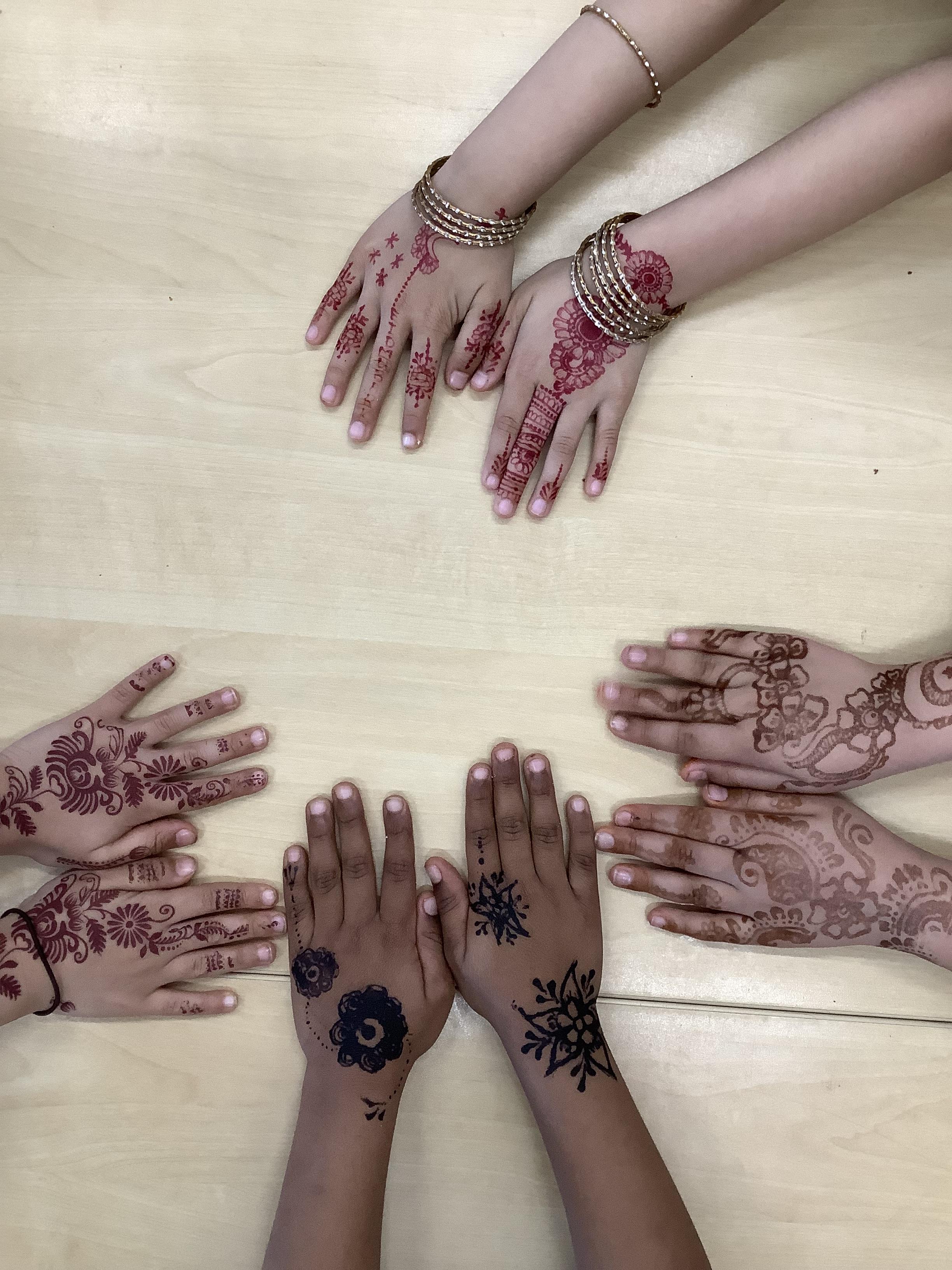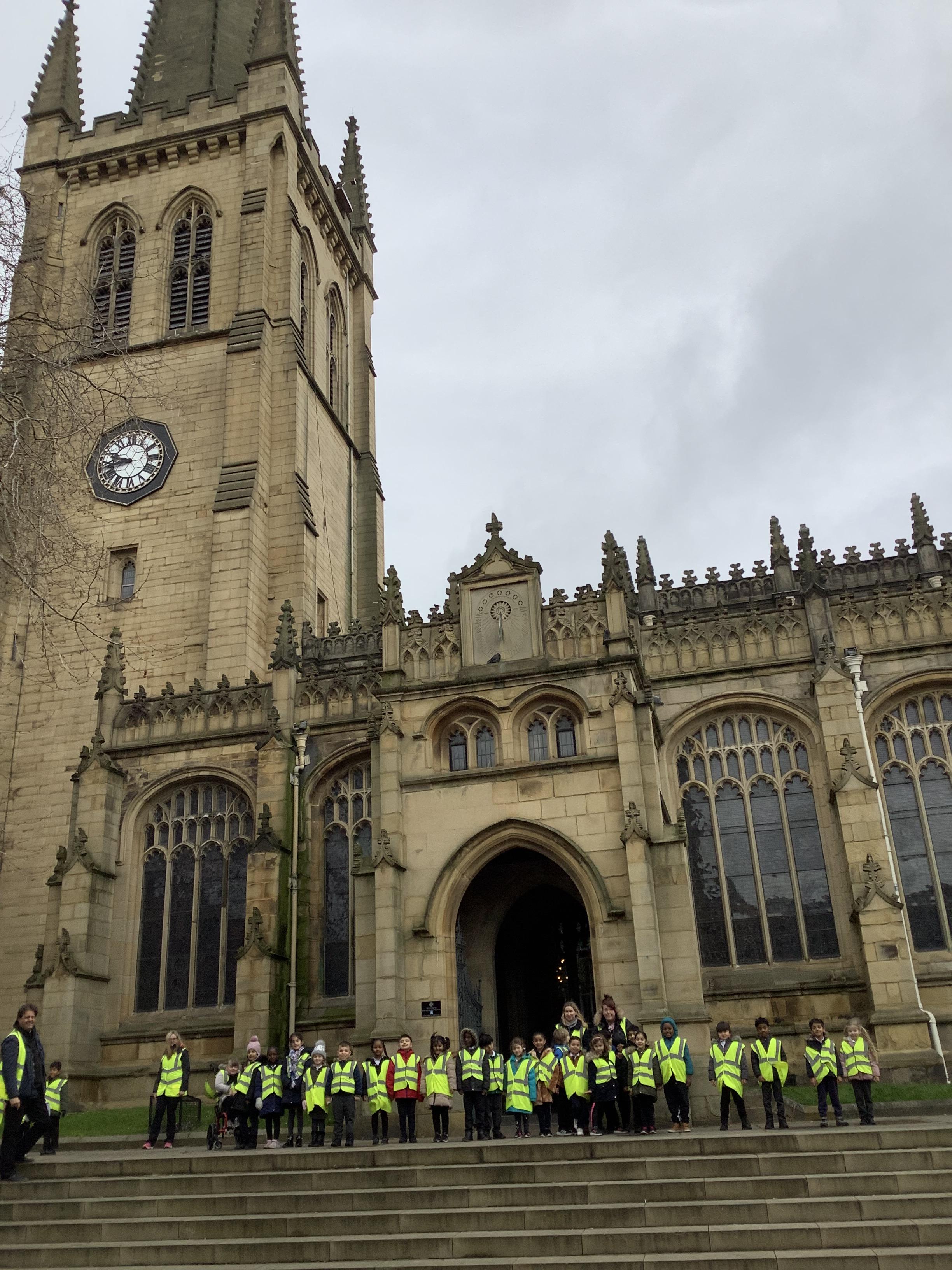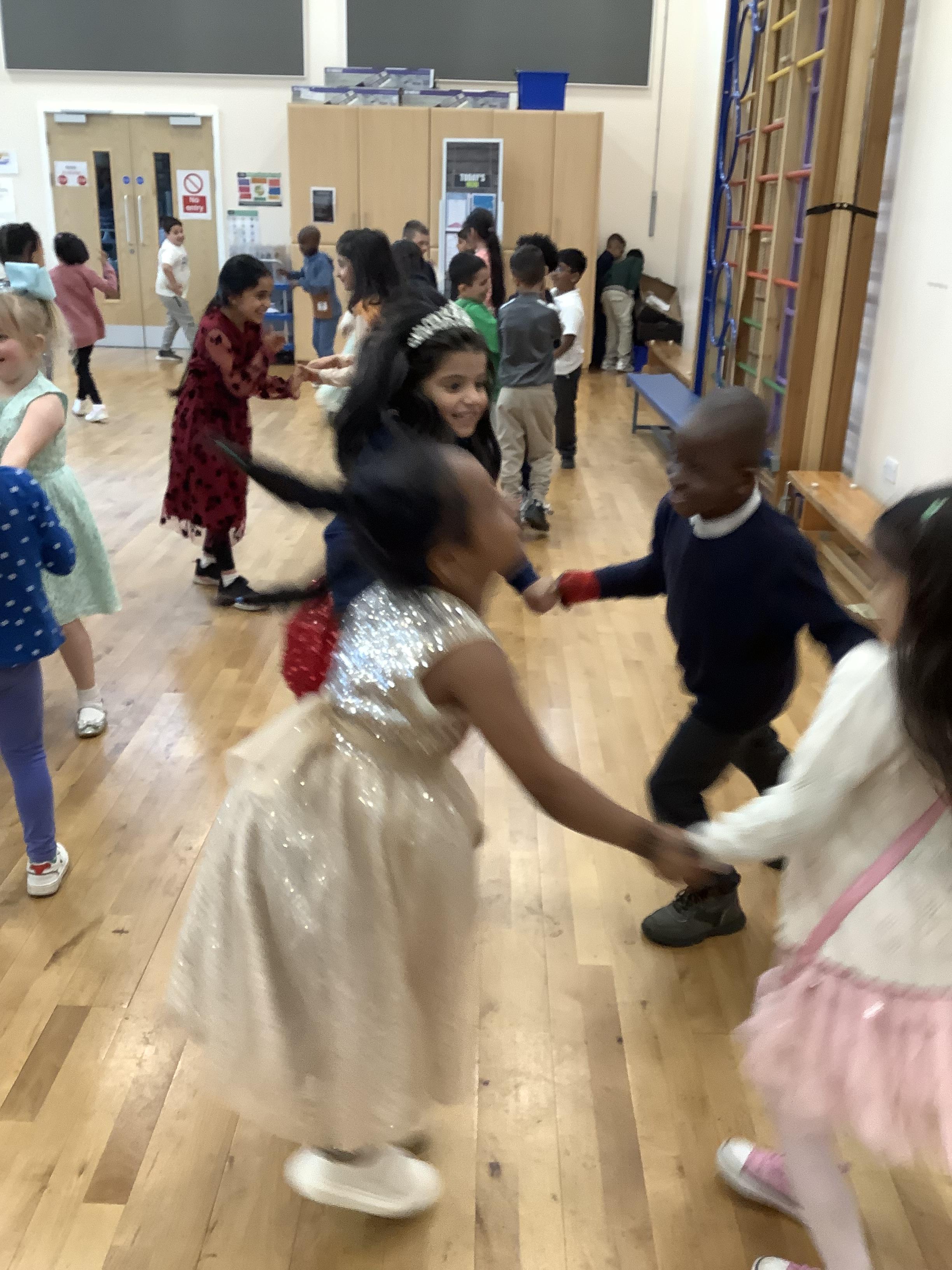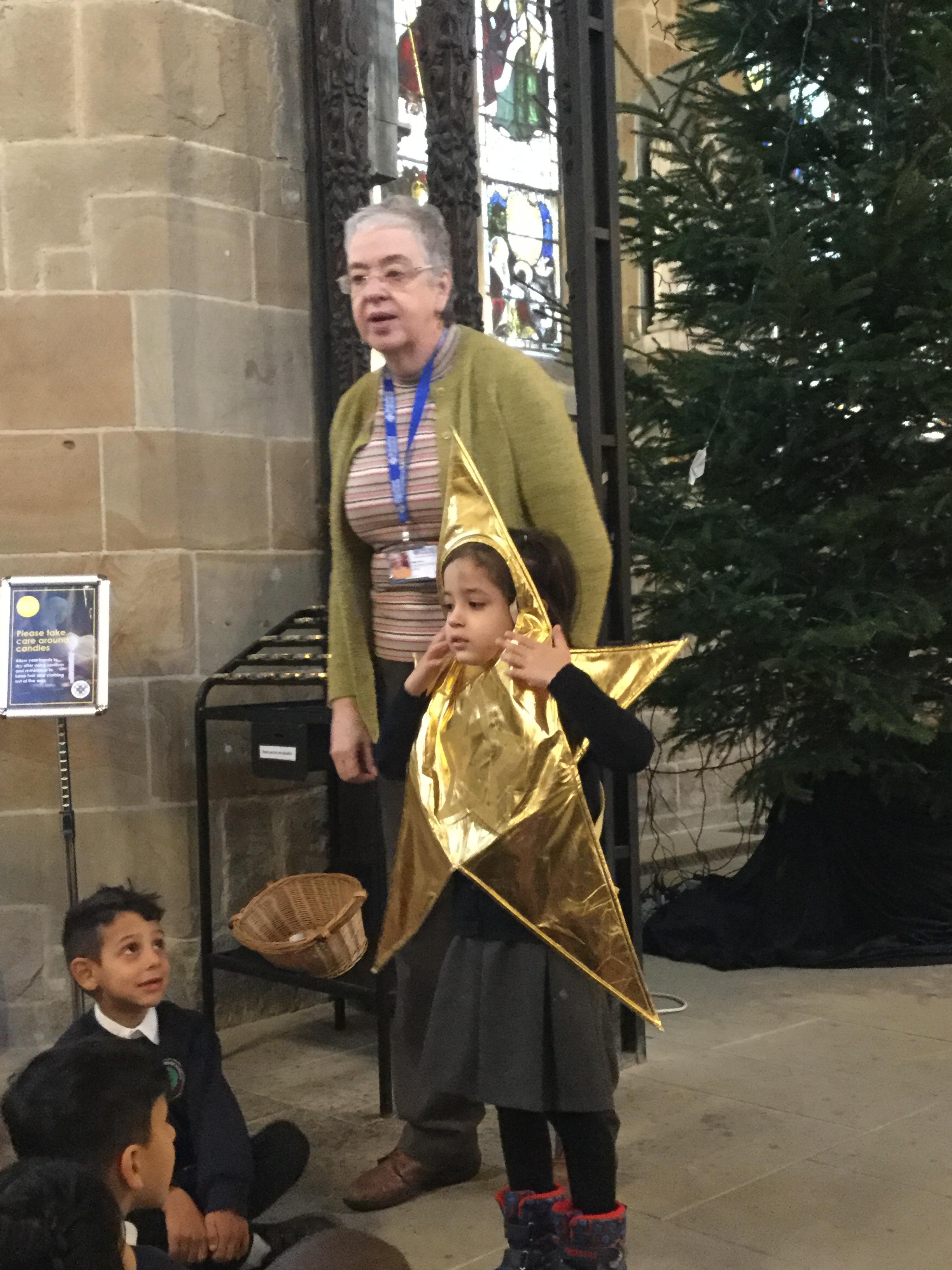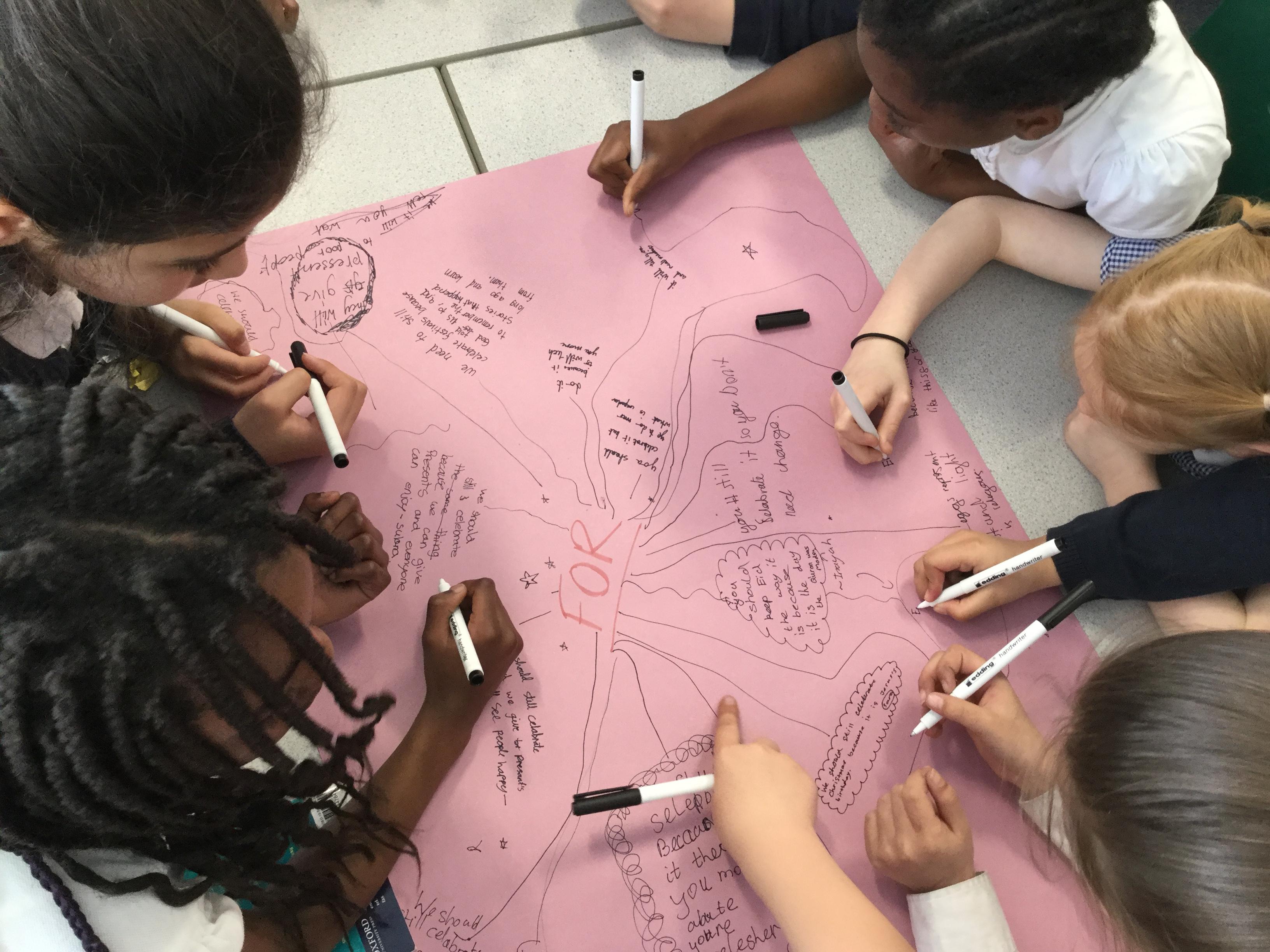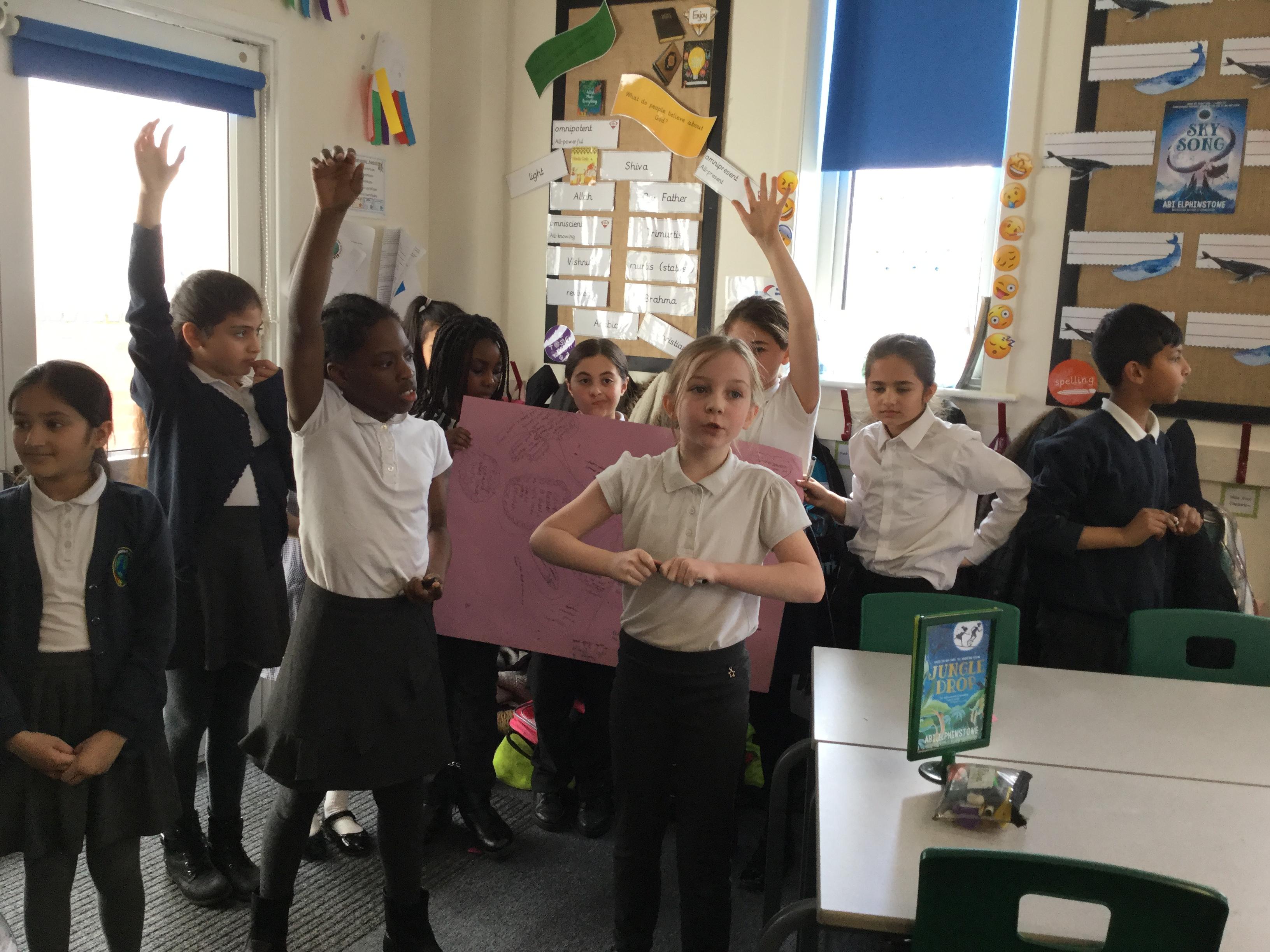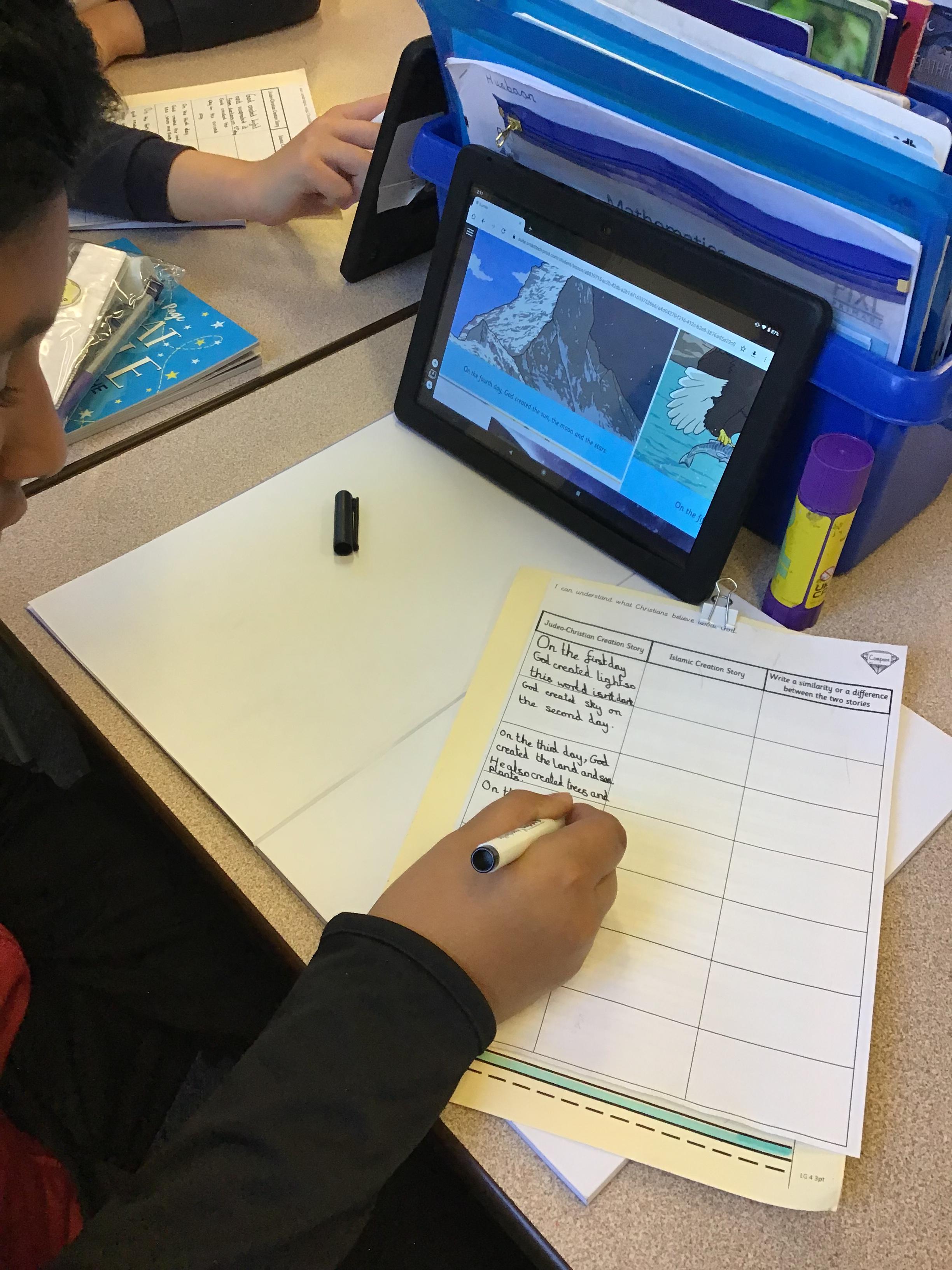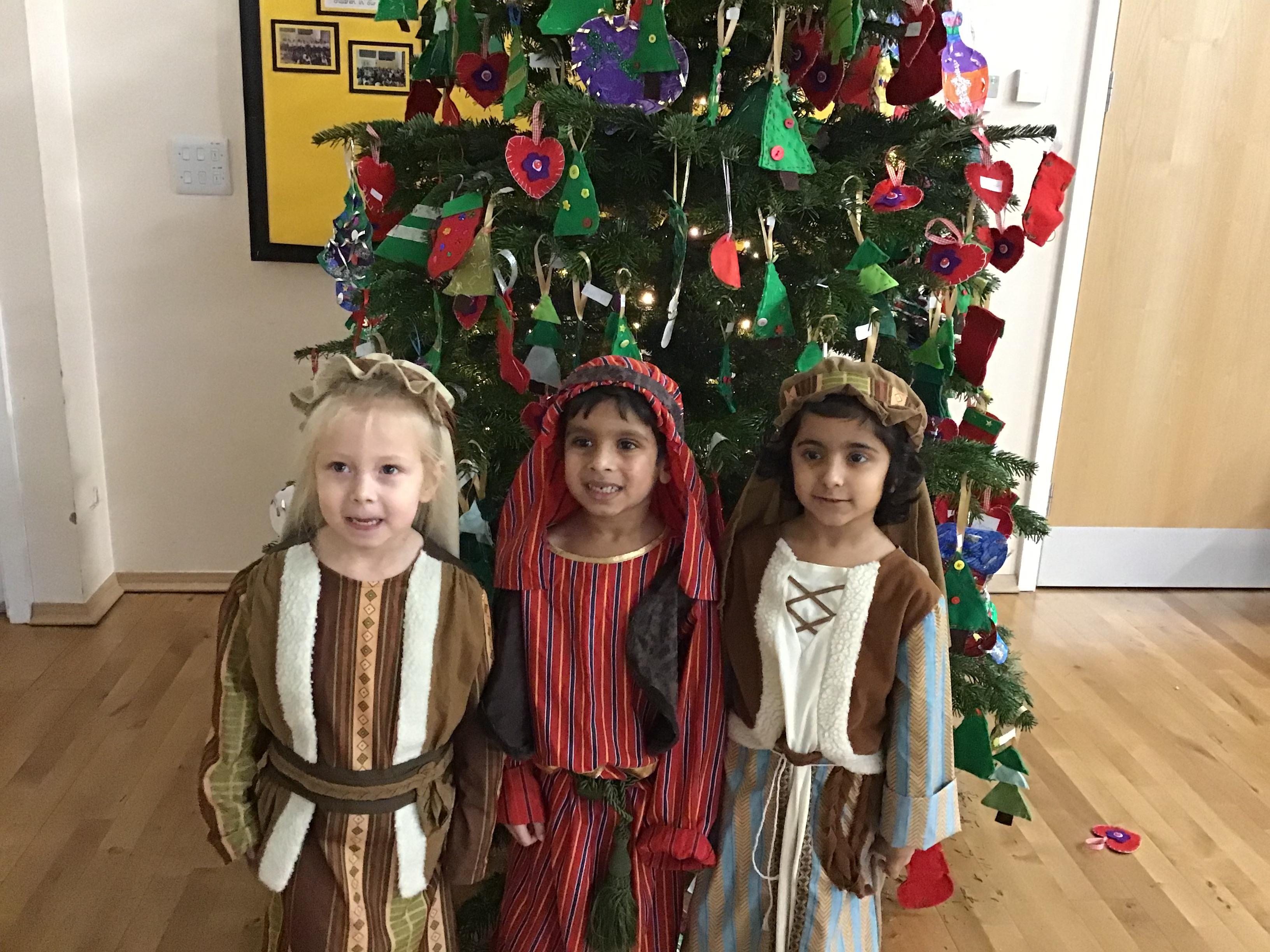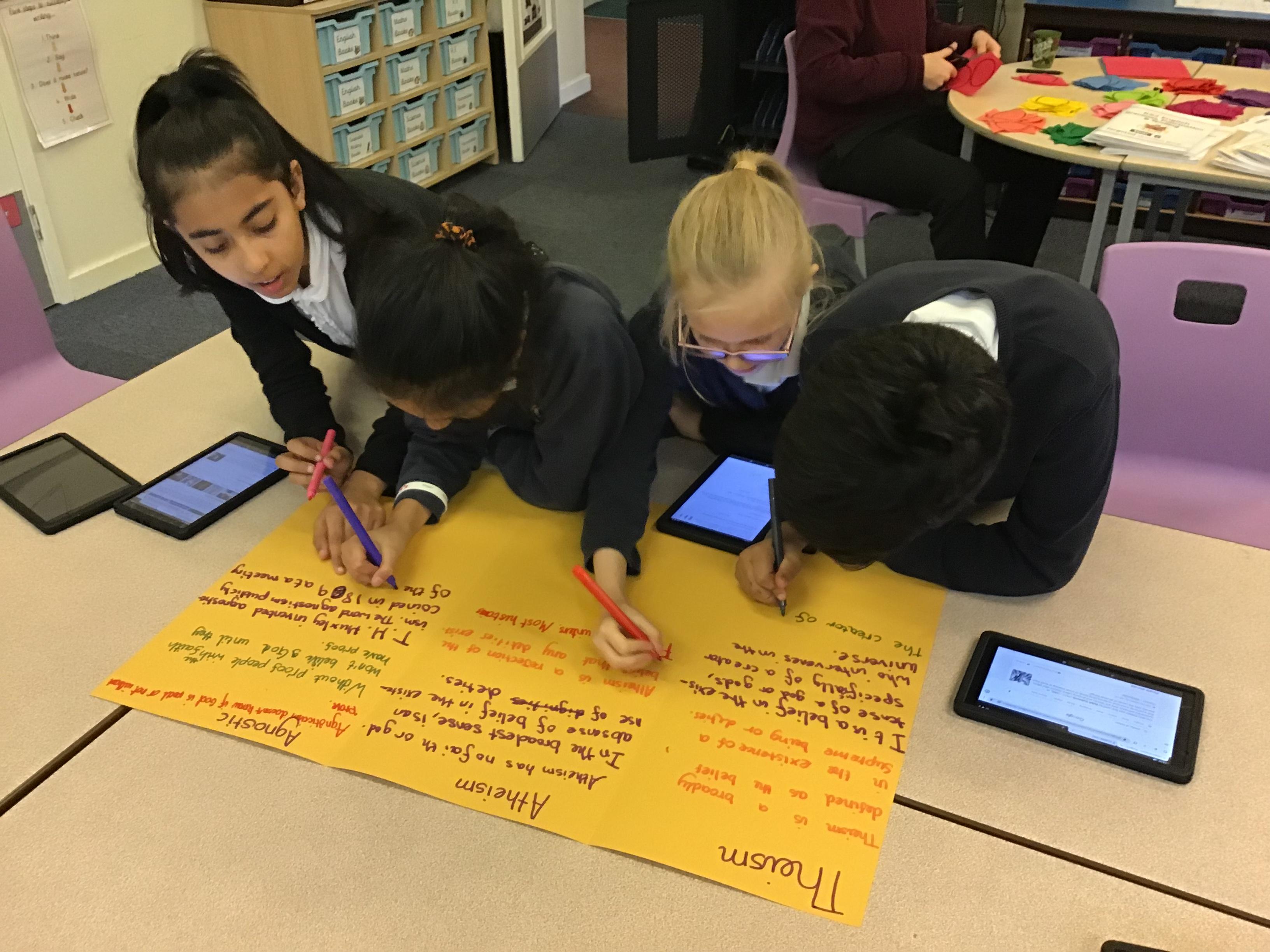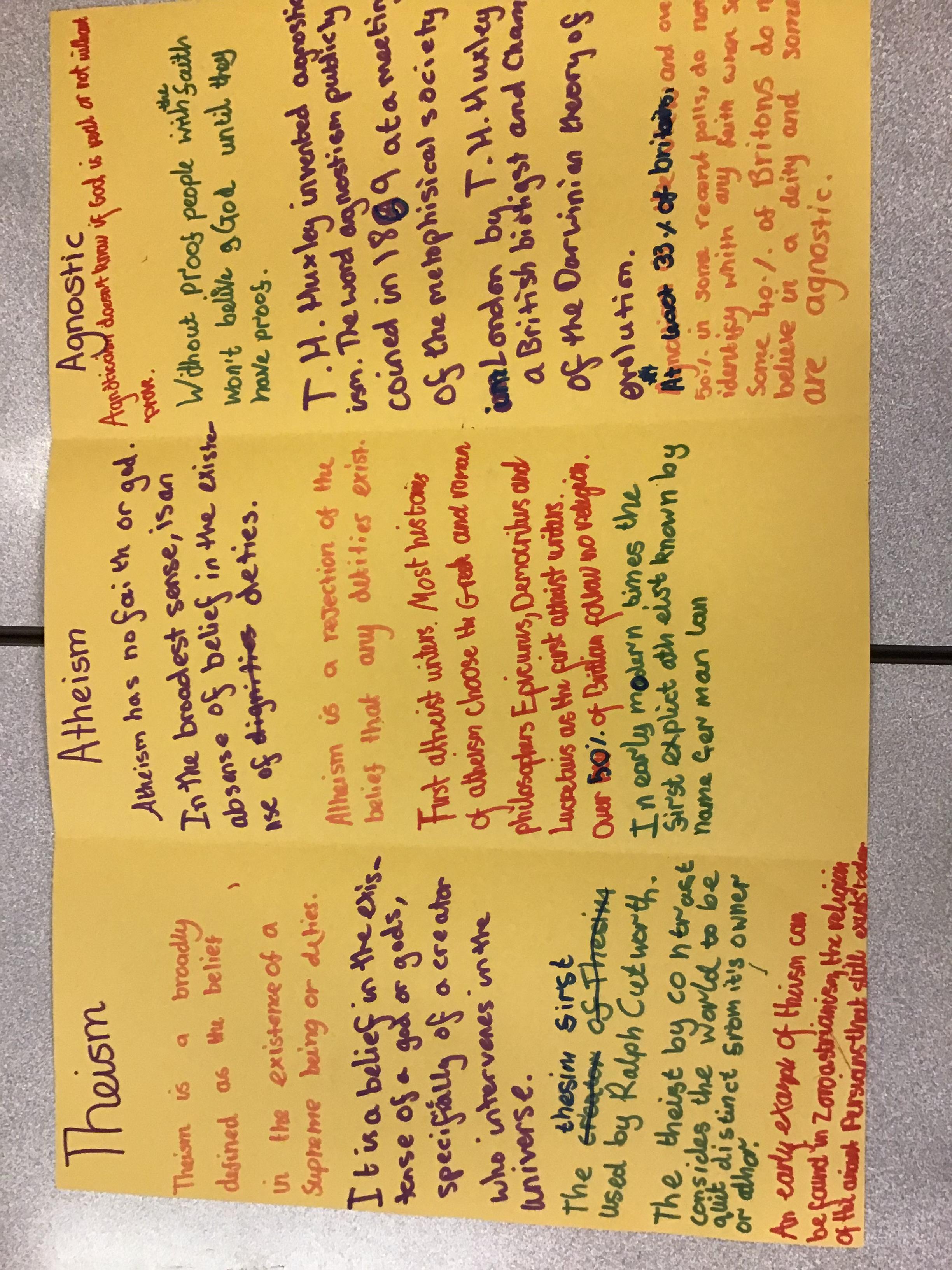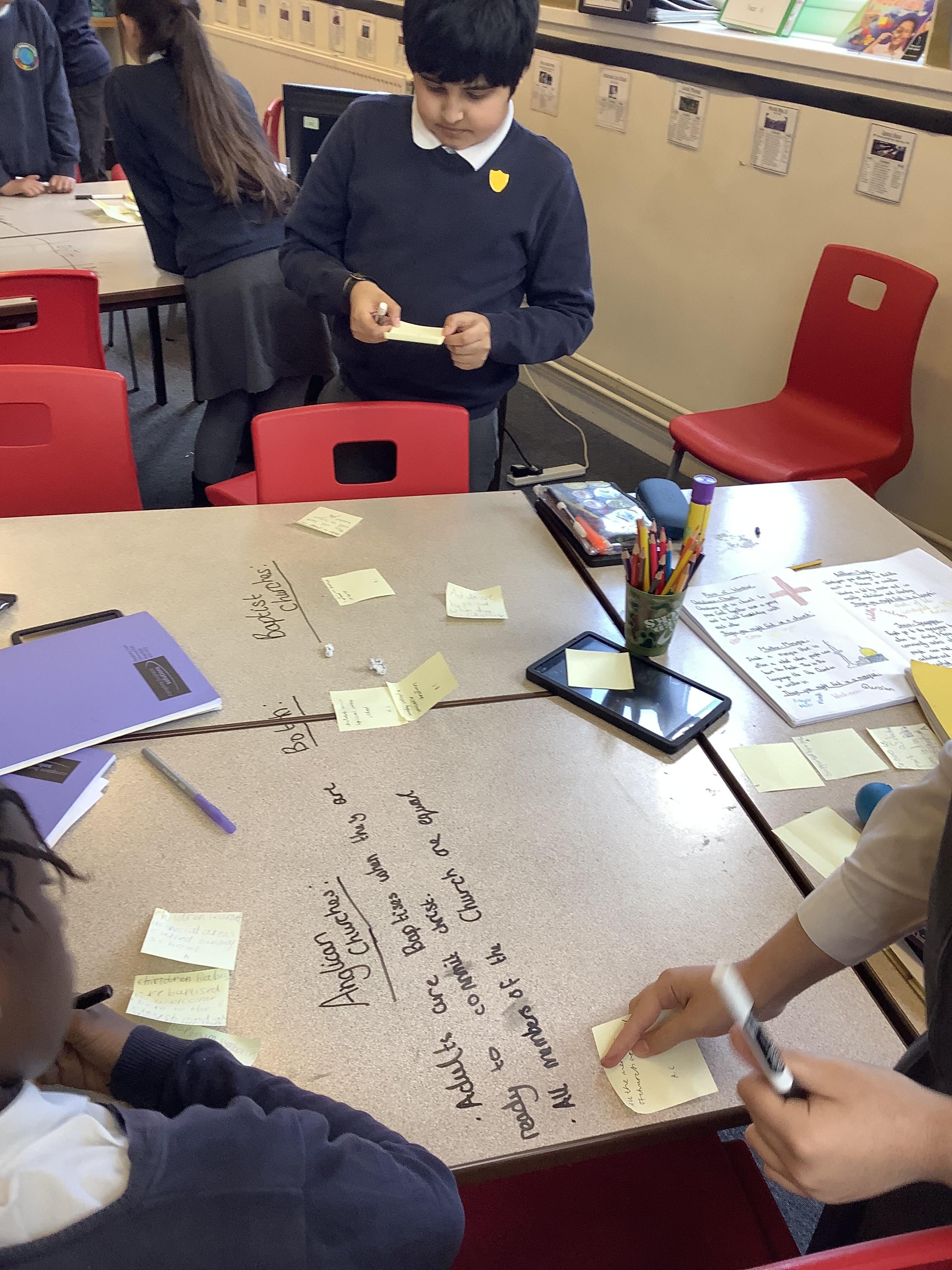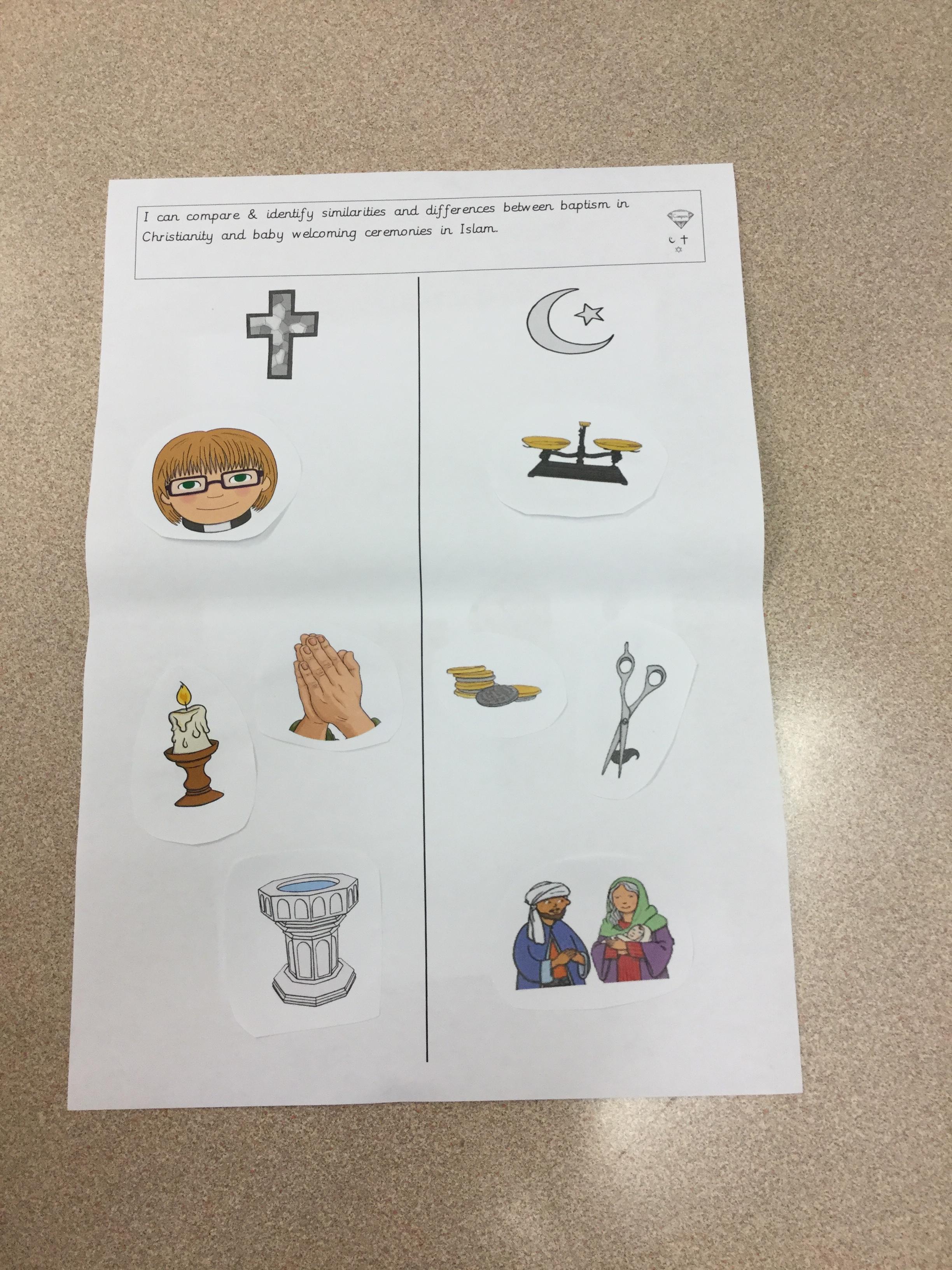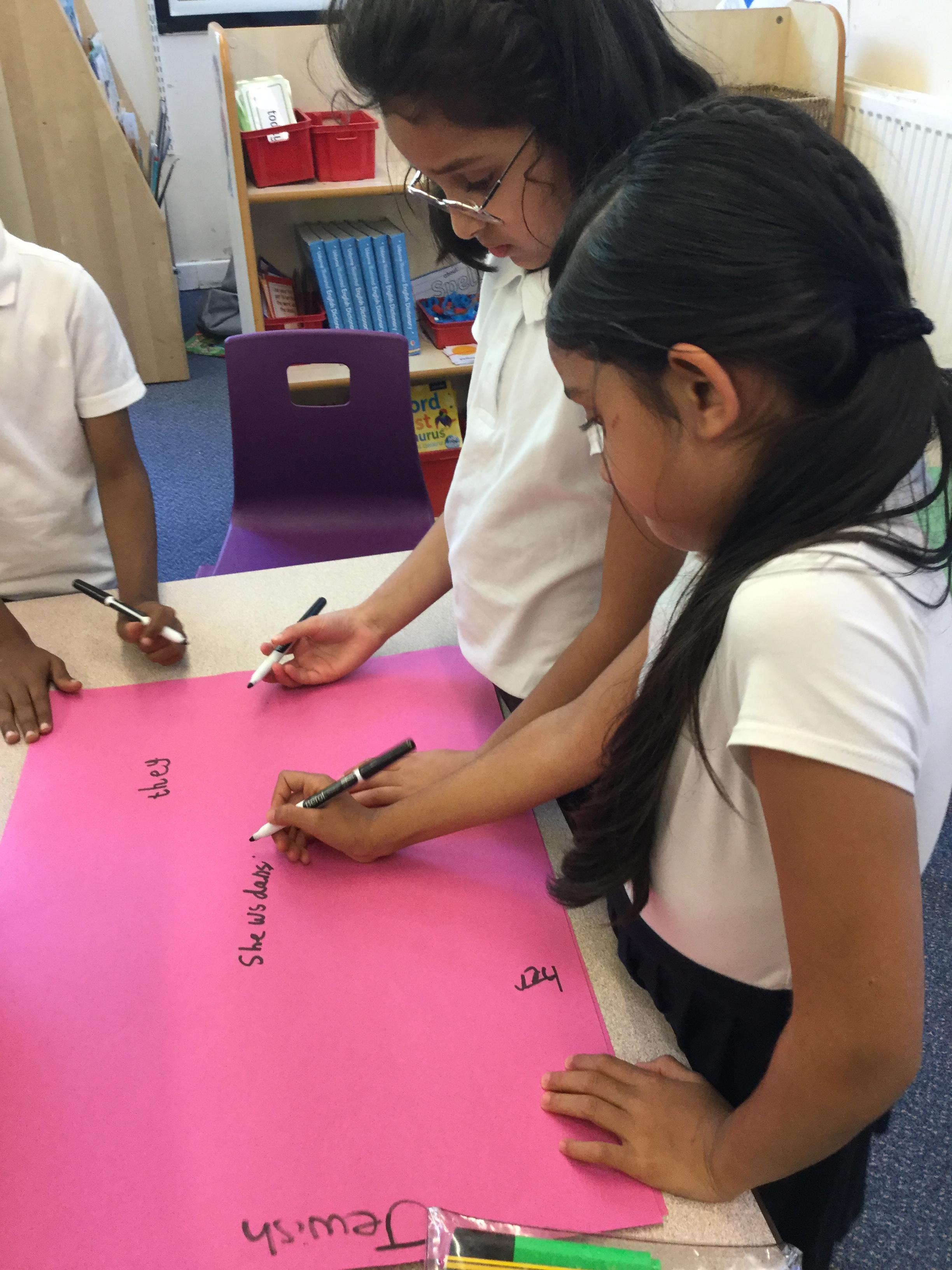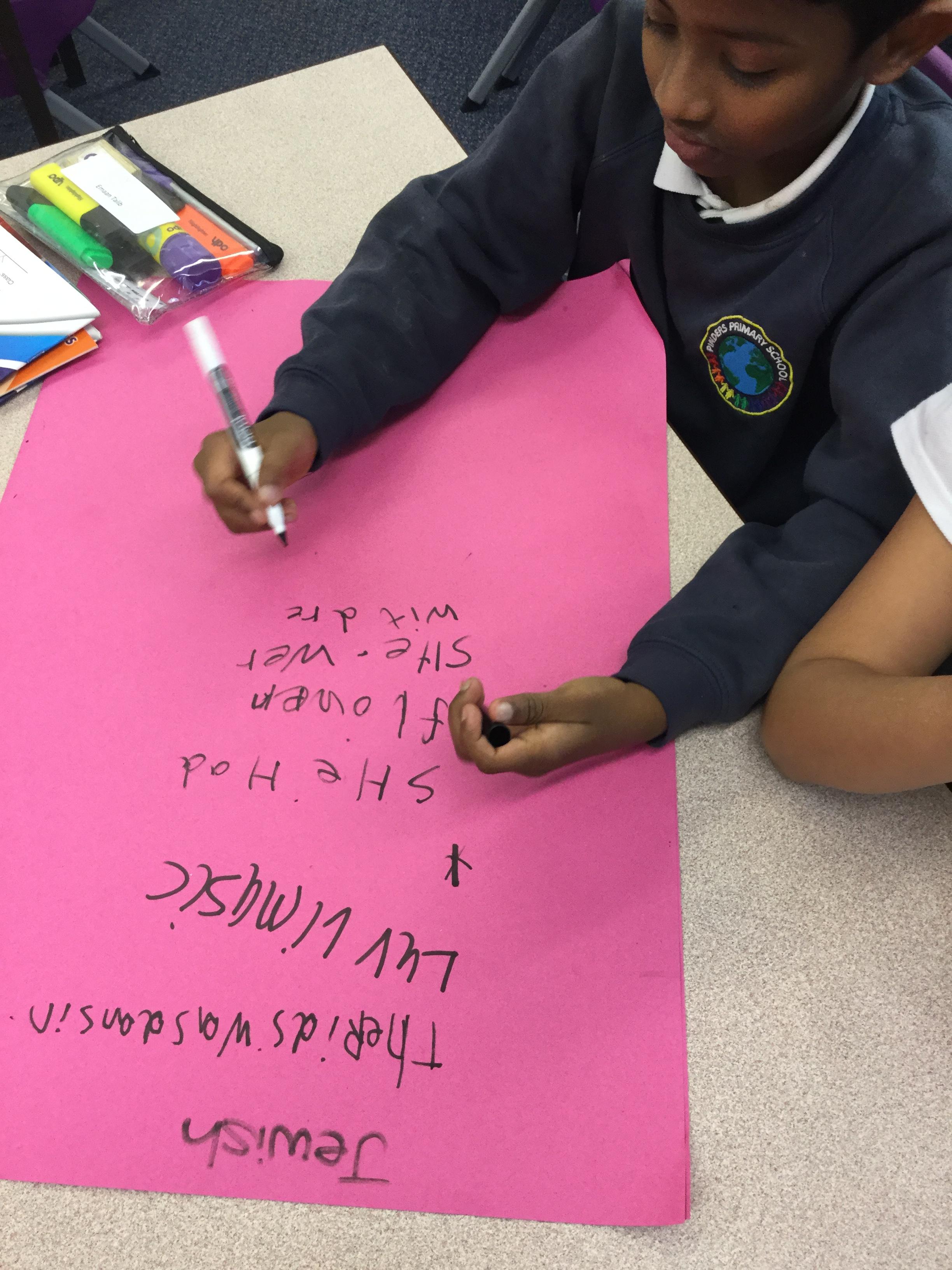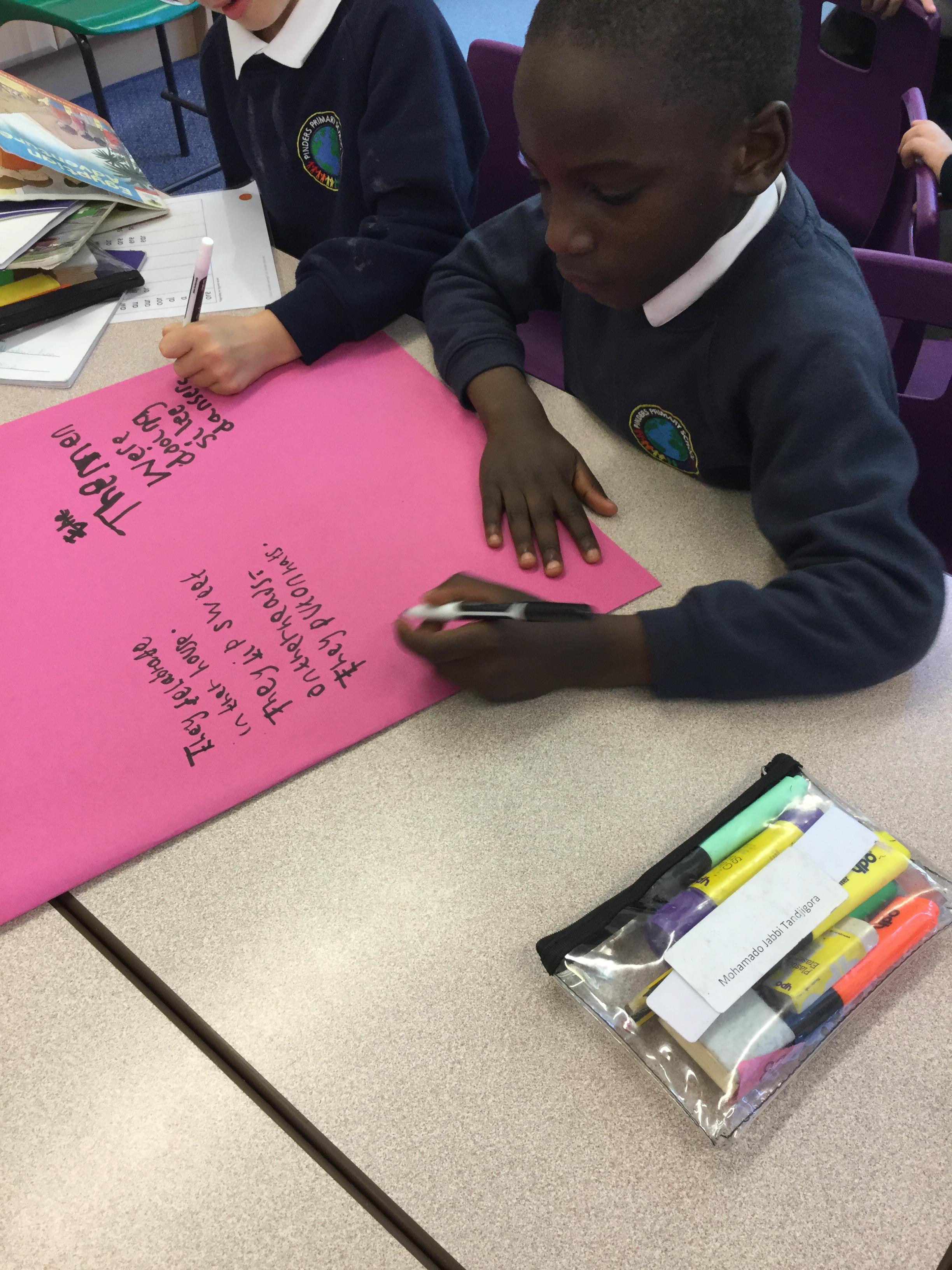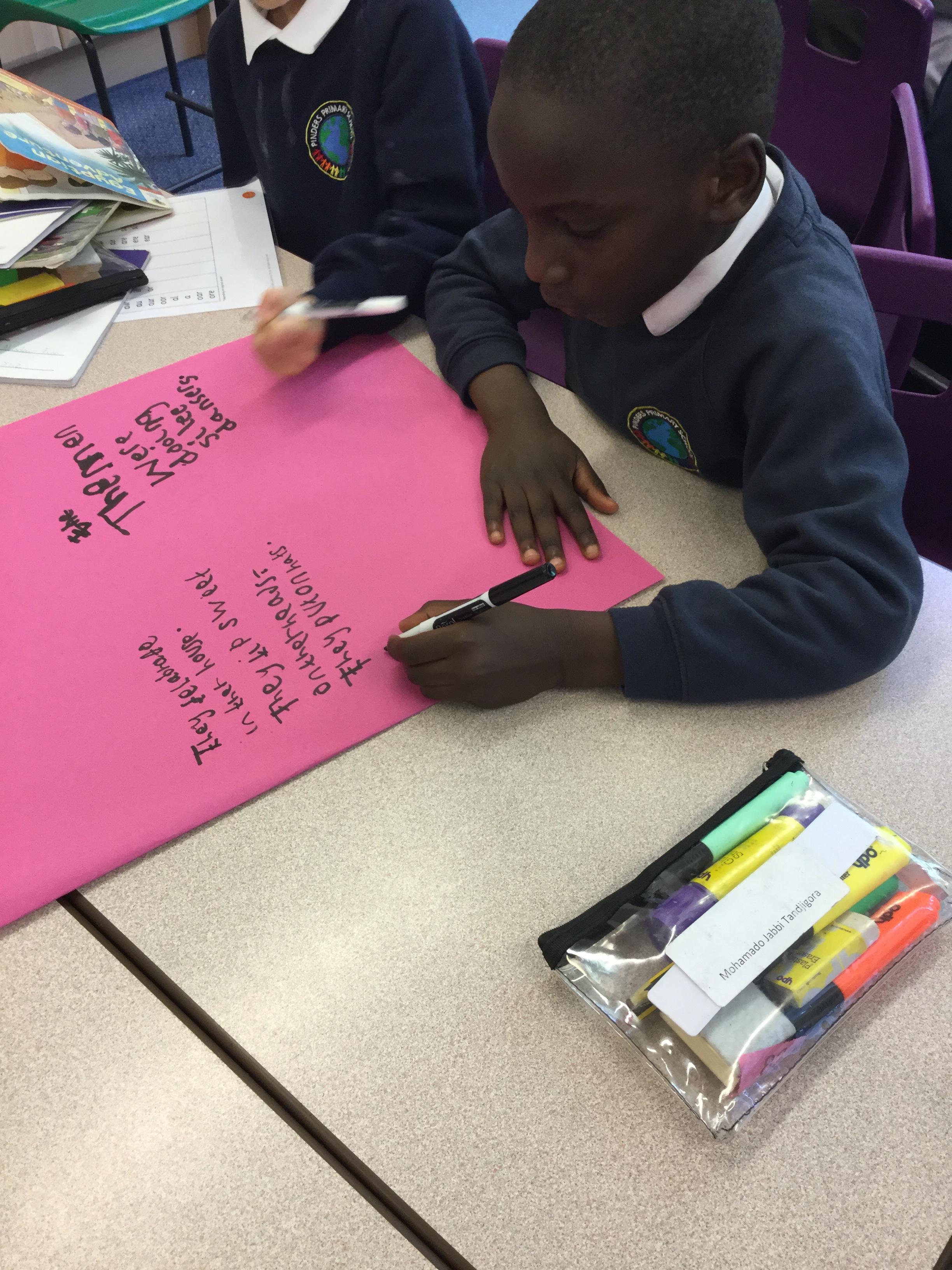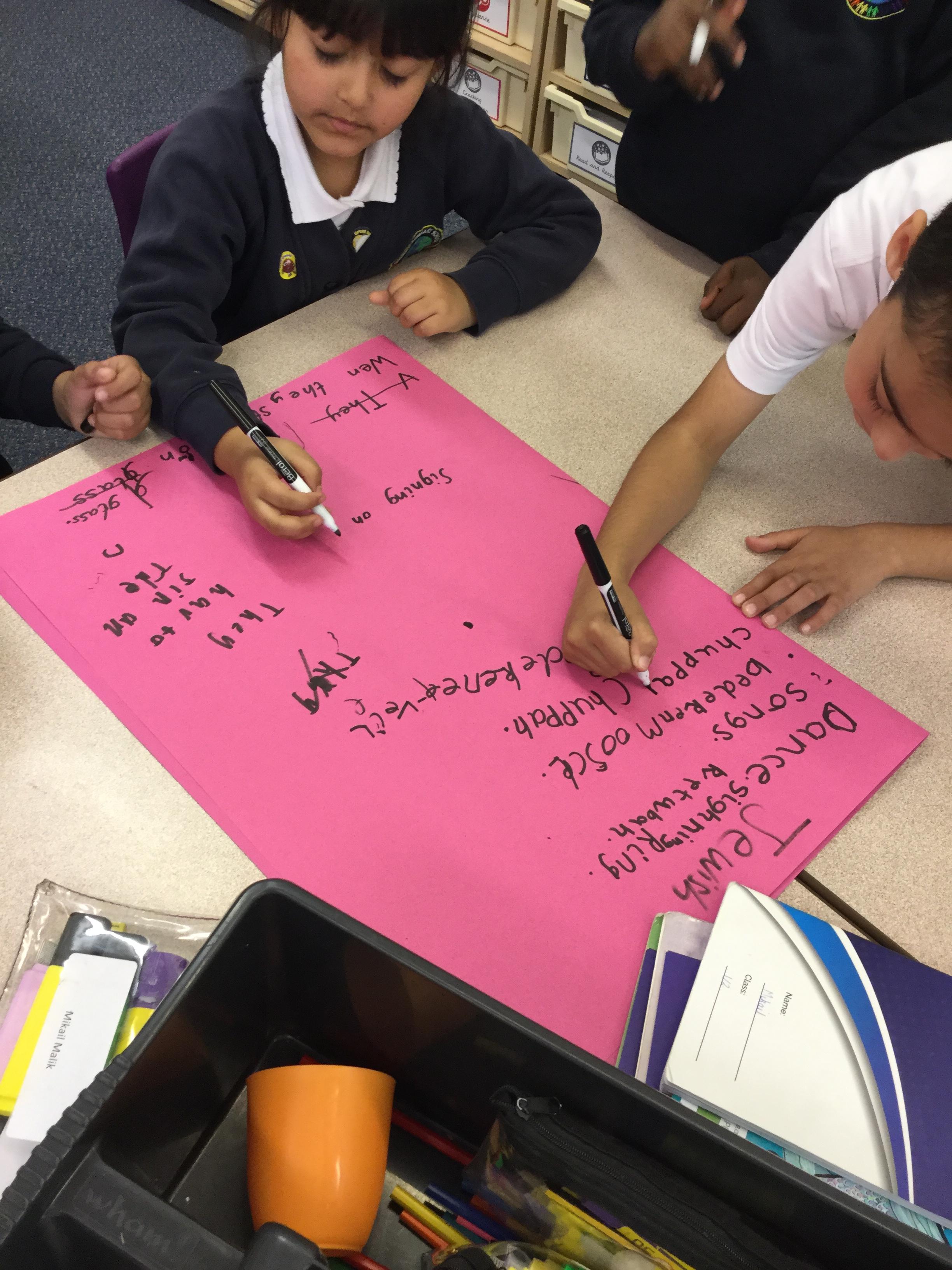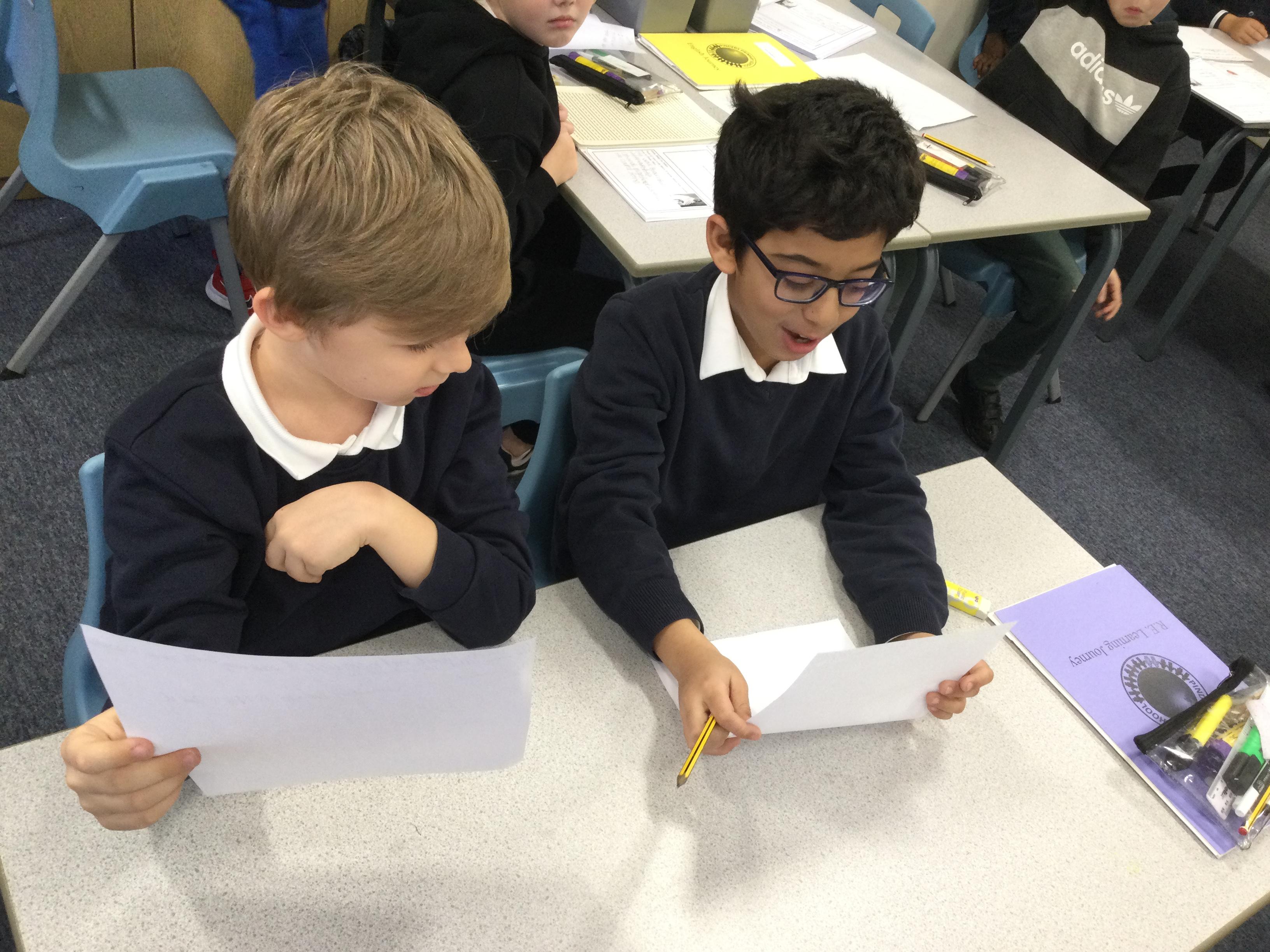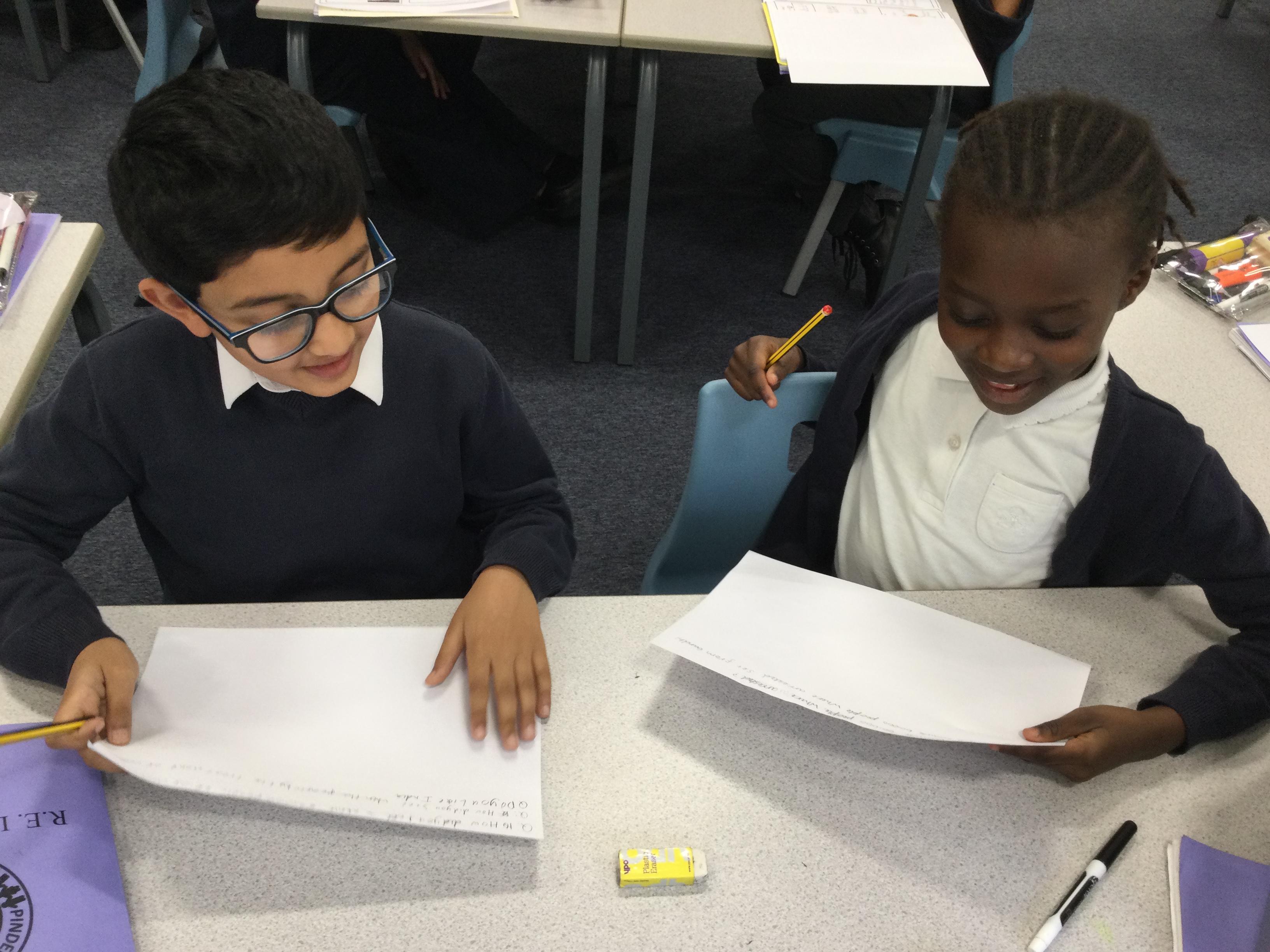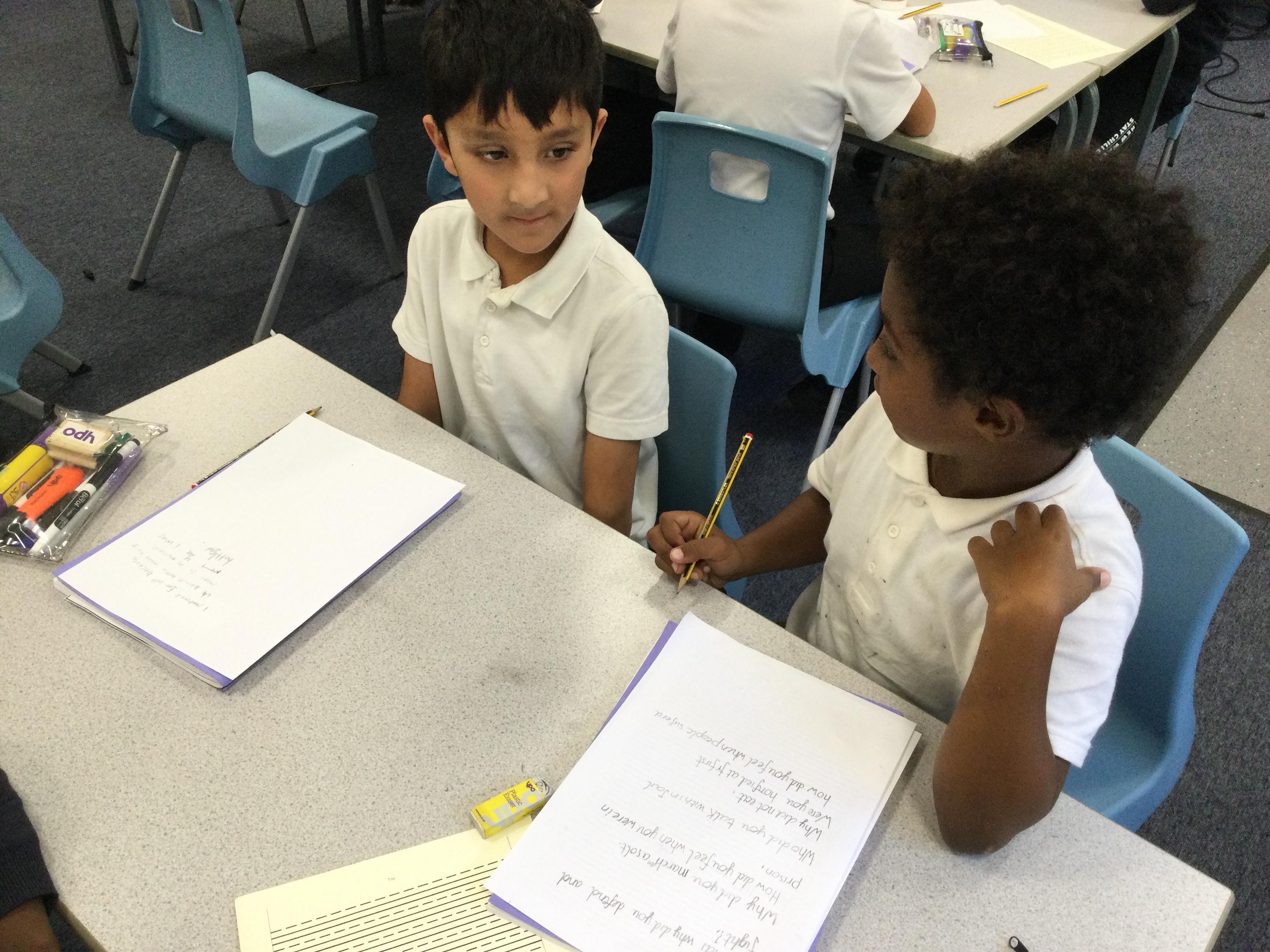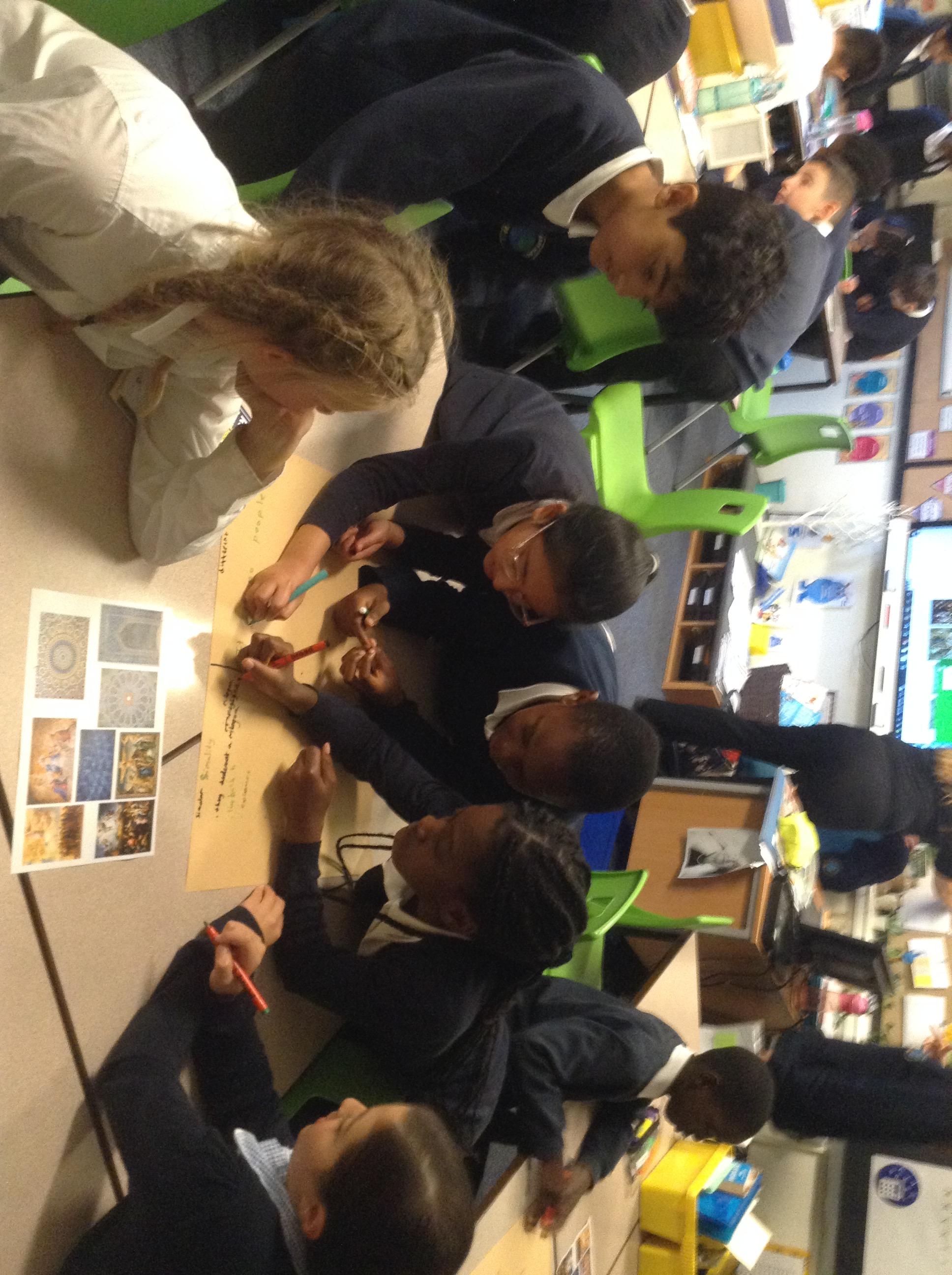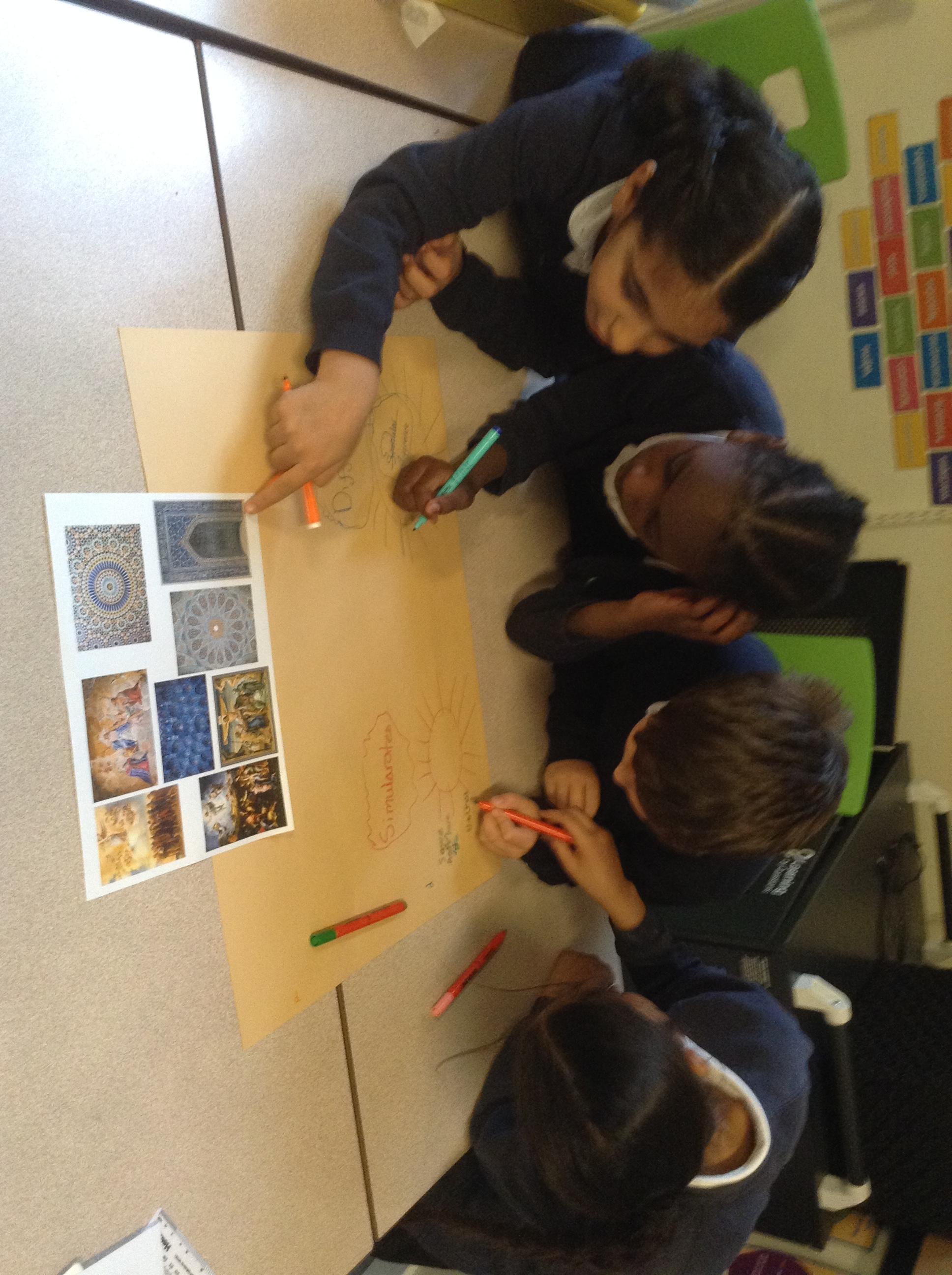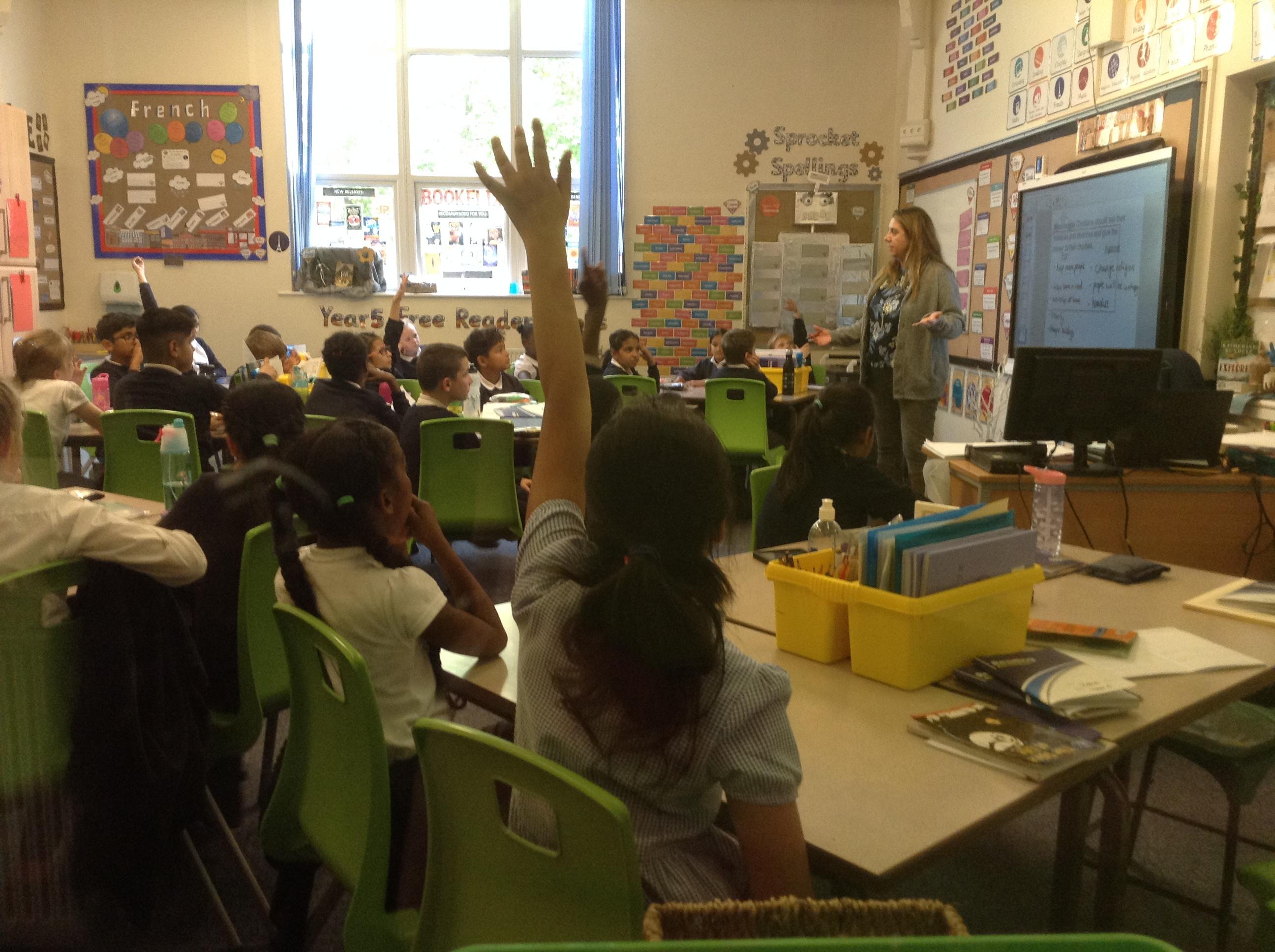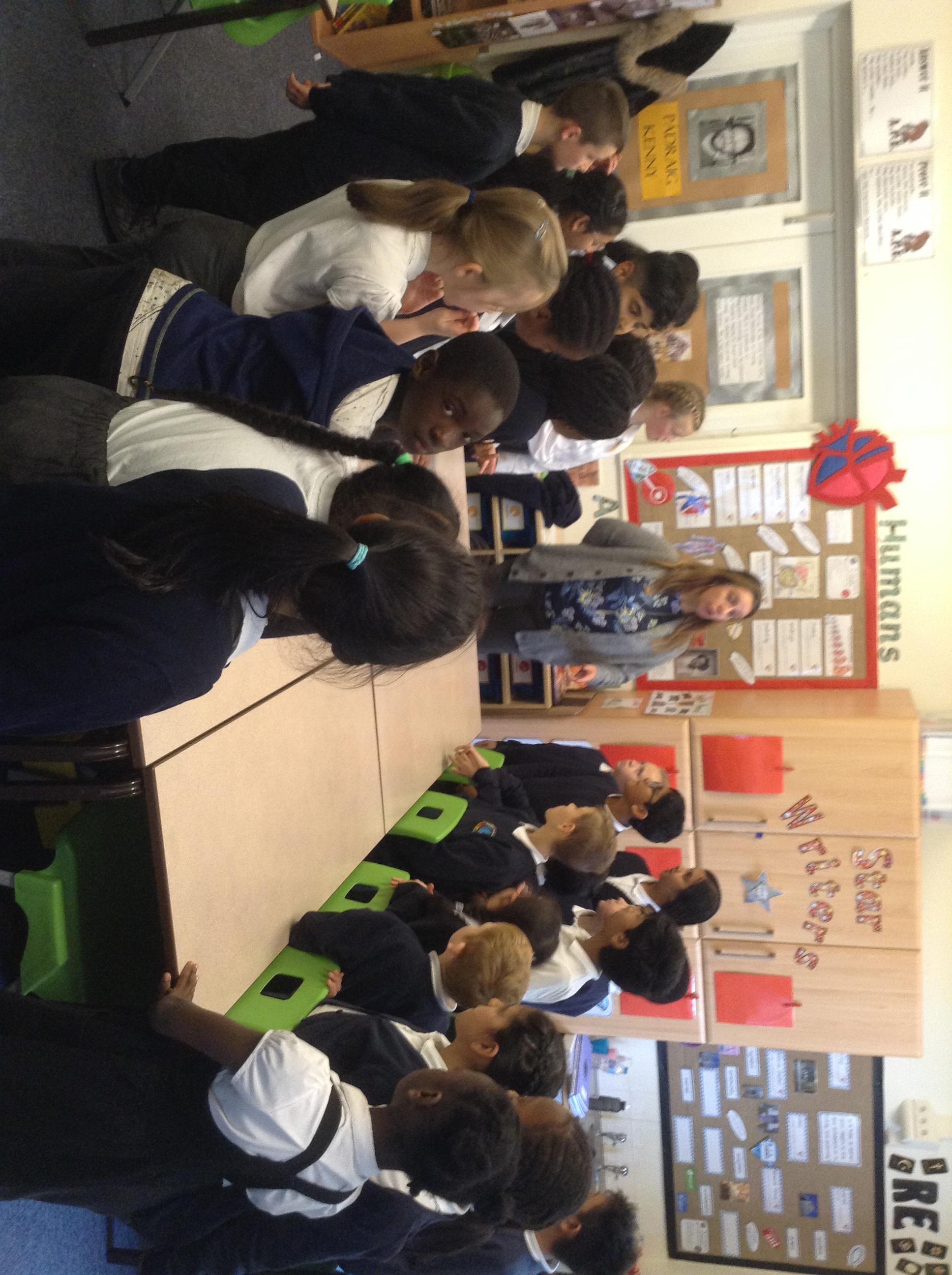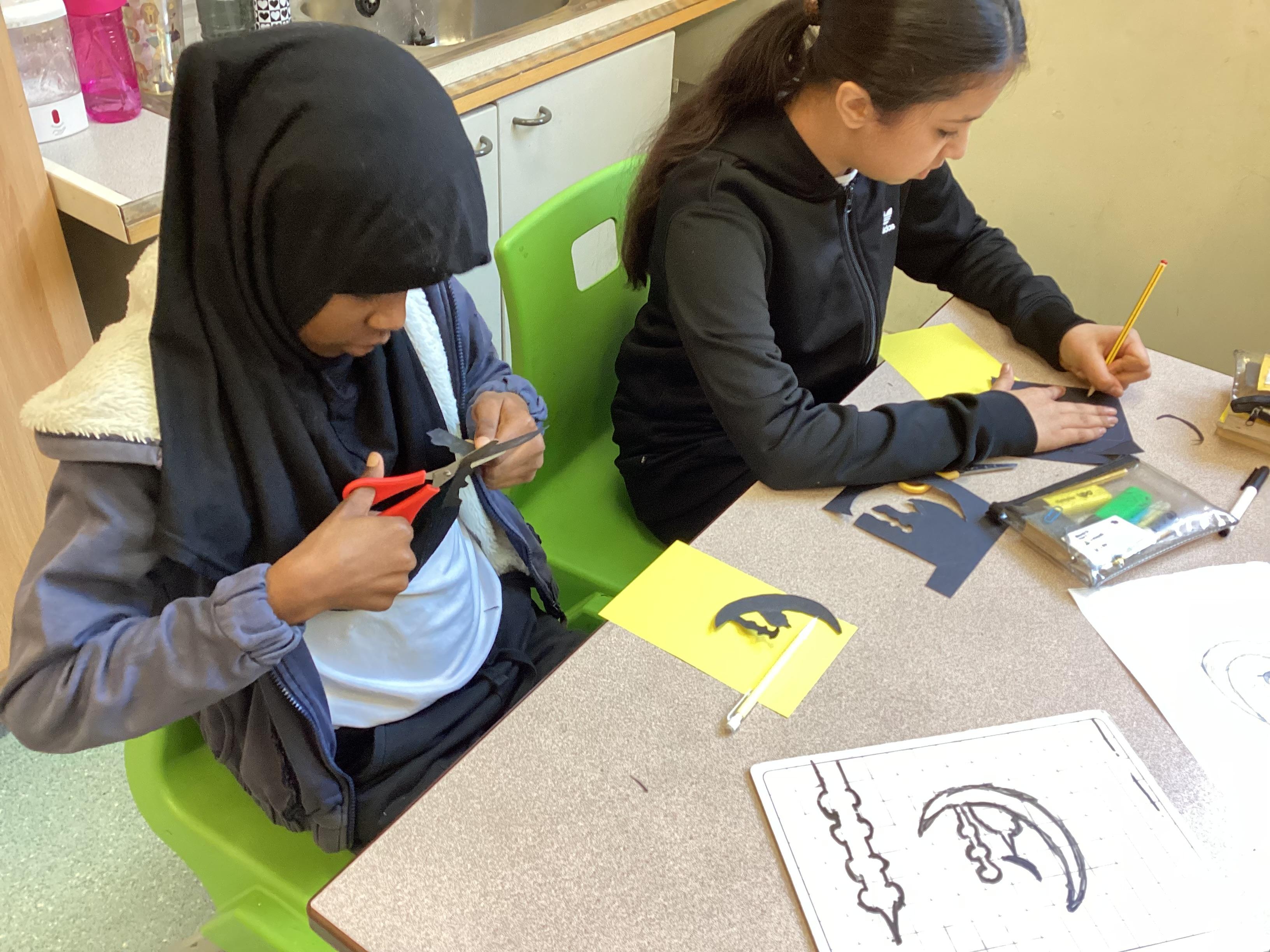RE
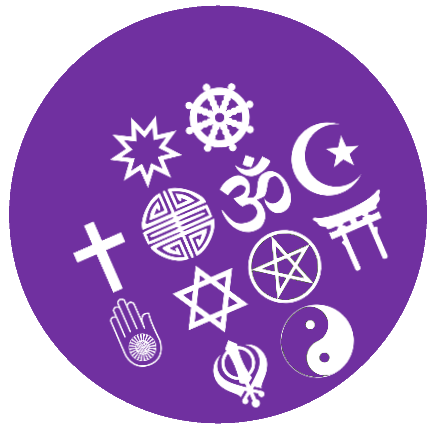
Religious Education
"We may have different religions, different languages, different coloured skin, but we all belong to one human race." Kofi Annam
Subject Leader: Mrs H. Beetham
Subject Governor: Mr J Allott
RE Intent Statement
Pinders Primary School is a multi-faith school. We believe that it is vital for children to study Religious Education not only to learn from and about other faiths, but to also understand the diverse world and community that they are part of. Through the teaching of Religious Education, children develop their knowledge of world faiths, traditions, values and cultures giving them an understanding and awareness of the culture rich society we live in. In lessons, we encourage children to ask challenging ‘big questions’ about the world that they live in such as the meaning of life, issues of right and wrong and beliefs about God, reflecting on their own beliefs, values and experiences. At Pinders Primary, children learn tolerance and respect for those around them and learn to challenge stereotypical beliefs contributing to their personal development and well-being. Religious Education at Pinders Primary offers the opportunity for personal reflection and spiritual development, deepening the understanding of the significance of religion in the lives of others. Through trips to places of worship in our local area and visits from local people of faith, we aim to deepen children’s experiences.
We use the agreed Wakefield Religious Education syllabus as the foundation for our curriculum.
Aims in teaching Religious Education at Pinders Primary School:
We aim:
- To develop the spiritual, moral, cultural, social, mental and physical development of pupils providing them for the opportunities and experiences in later life.
- To provide a broad and balanced curriculum developing pupils’ knowledge and understanding of Christianity, of other principal religions, other religious traditions and worldviews.
- To develop pupils' mutual respect and tolerance in a diverse society.
How is the content chosen?
Whenever possible, we teach through a themed approach enabling children to embed learning and make connections leading to a greater depth of understanding within Religious Education (RE.) The religions and worldviews taught are carefully selected and organised through the year groups and whenever possible, coincide with key religious events. The content chosen reflects the expectations of the National Curriculum and Early Years Foundation Stage (EYFS) framework, as well as the Wakefield agreed syllabus for RE.
How is RE taught?
At Pinders Primary school a clear and comprehensive scheme of work in line with the National Curriculum and Wakefield Agreed Syllabus for RE is in place. A two year, long term rolling programme maps out the coverage of the discrete teaching and learning opportunities for children to explore different RE themes. At our school, we follow the Wakefield Agreed Syllabus and have tailored it carefully to meet the needs of our multi-faith school and community.
How do we ensure progression of knowledge and skills?
At Pinders Primary School, we have in place for RE a comprehensive knowledge and skills progression document which is used for planning, ensure sequenced and appropriate content for specific year groups, as well as a build up of knowledge and skills.
Within these documents, there are also opportunities for differentiation in order to meet the needs of all pupils.
Becoming a Theologist!
When children are learning about RE through a discrete teaching session, they are explicitly told that today they are going to be 'Theologists'. They are then reminded of the key skills that they will learn, use and develop within that subject.
In RE these are:
We are learning to:
· Find out about different religions, faiths and beliefs.
· Accept and respect the thoughts, feelings and ideas of others.
· Compare religious practices.
· Compare the ideas, beliefs and religions of others to our own.
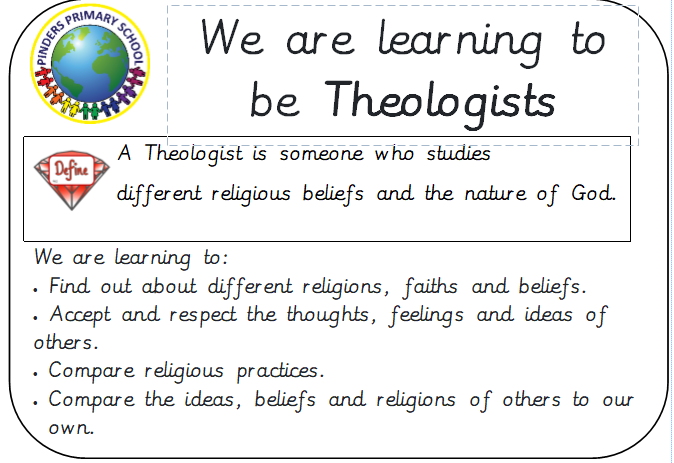
Teaching RE in EYFS
In EYFS, planning is unique to the children and incorporates their interests and next steps in their development. Children in EYFS encounter religions and worldviews through special people, books, times, places and objects and by visiting places of worship. They listen to and talk about stories. Children are introduced to subject specific words like bible and mosque and use all their senses to explore beliefs, practices and forms of expression. We encourage children to ask questions and reflect on their own feelings and experiences. They use their imagination and curiosity to develop their appreciation of and wonder at the world in which they live.
Respect is taught from the very start of school here at Pinders Primary, to create a mutually respectful environment for all and for children to feel safe to express their own beliefs, thoughts and ideas about the world.
Reading in RE
Books are a central part of our RE curriculum and every new topic starts with a book.
Below is an overview of the books embedded into our RE curriculum.
RE Book Overview
How do we develop cultural capital in RE?
Cultural capital is the accumulation of knowledge, behaviours, and skills that a child can draw upon and which demonstrates their cultural awareness, knowledge and competence; it is one of the key ingredients a pupil will draw upon to be successful in society, their career and the world of work.
In RE, we aim to provide children with opportunities to develop their culture capital by going on school visits to various places of worship and providing workshops with visitors to school to openly talk about their own experience with faith. We also believe that this enhances our links with the local community.
Significant People in RE
Our RE curriculum provides our pupils with the opportunities to know about significant people of faith from around the world both in the past and present. We encourage children to find out more about inspirational people of faith like Mother Teresa and Ghandi and what we can learn from their actions.

